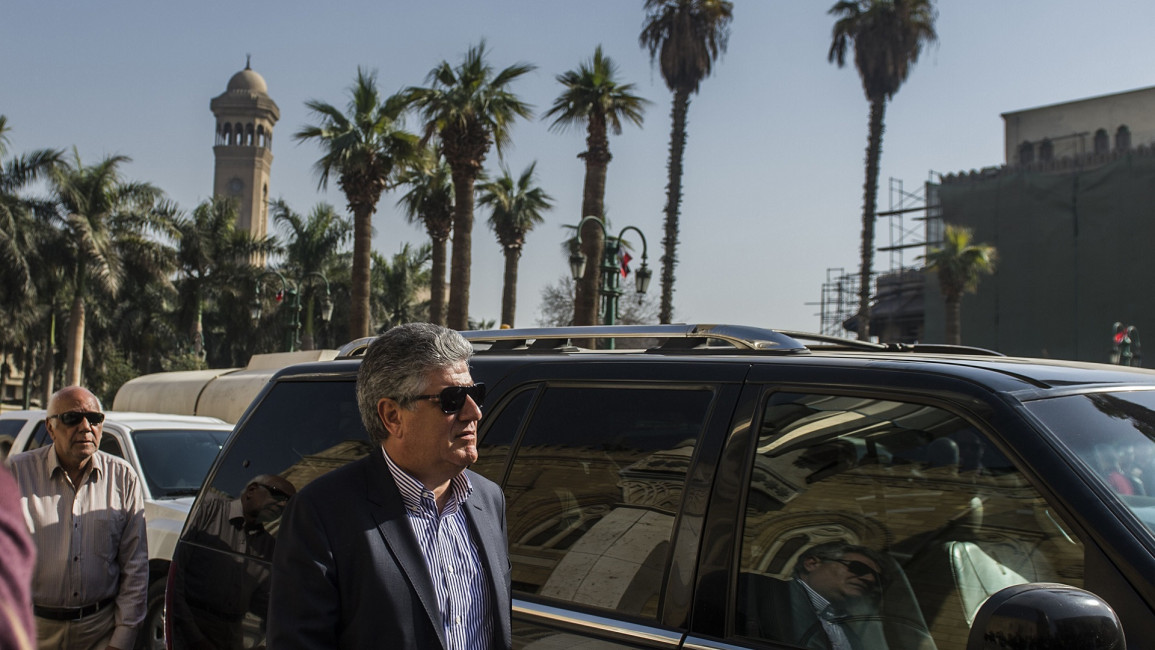Risking angering its Gulf allies, Egypt receives Hizballah delegation
A delegation from powerful Lebanese militant group Hizballah has visited Cairo to offer respects to the family of the late Egyptian journalist Mohamed Hassanein Heikal.
The delegation's presence in Egypt has caused controversy, as reports suggested its members met with Egyptian officials, including in the intelligence community.
The Iranian-backed Shia militant group sent to Cairo its head of Arab relations Sheikh Hassan Izz al-Din along with MP Ali Miqdad and media relations officer Mohammad Afif.
After paying their respects in a mosque in downtown Cairo, the delegation made a brief statement saying Heikal's death was a loss to the nation's causes led by Palestine and resistance against Israel.
"The visit by Hizballah's delegation could not have happened without the consent of Egyptian intelligence," a high-level Egyptian source told The New Arab.
The source reckoned the delegation had held talks with Egyptian officials to discuss regional issues, led by the Syrian war where Hizballah is fighting alongside the forces of Bashar al-Assad as part of Russian-Iranian efforts to shore up his regime.
 |
An official statement by Hizballah later said the visit was to offer Heikal's family condolences on behalf of its secretary general, but did not deny the reports regarding meeting with Egyptian officials. |  |
An official statement by Hizballah later said the visit was to offer Heikal's family condolences on behalf of its secretary general, but did not deny the reports regarding meeting with Egyptian officials.
There was no denial from the Egyptian government either.
Although Egyptian President Abdul-Fattah al-Sisi has received close backing from Saudi Arabia and the UAE following his coup against Muslim Brotherhood-aligned President Mohammed Morsi, he has often dealt with bitter foes of his allies in the Gulf.
These include Russian President Vladimir Putin, the regime of Bashar al-Assad, Iran and now Hizballah.
Tensions recently escalated between the Gulf and Hizballah, precipitating major punitive measures against Lebanon on the back of what the Gulf says is the militant group's growing sway over its policies to the detriment of Gulf interests.
Last week, Riyadh decided to halt military aid to Lebanon. In the following days, the kingdom, the UAE, Kuwait, Bahrain and Qatar warned their citizens against visiting Lebanon.
On Wednesday, Yemen’s Saudi-backed government accused Hizballah of meddling in its civil war, vowing to file a complaint against the party before the United Nations.
“The government has documents and circumstantial evidence that prove the extent of Hizballah's involvement in the war waged by the Houthi militias against the Yemeni people,” Yemen’s government spokesman Rajeh Badi told the state-run Yemeni Saba news agency.
A video circulating on various news websites reportedly shows a Hizballah militant advising Houthi fighters on combat tactics.
Meanwhile, prominent political analysts have weighed in on the possibility of Saudi Arabia stopping aid to Egypt after Lebanon because of Cairo's reservations over joining putative Saudi military intervention in Syria.


![Minnesota Tim Walz is working to court Muslim voters. [Getty]](/sites/default/files/styles/image_684x385/public/2169747529.jpeg?h=a5f2f23a&itok=b63Wif2V)




![Debris near Rafic Hariri International Airport [Getty]](/sites/default/files/styles/image_330x185/public/2176162423.jpeg?h=a5f2f23a&itok=MCSK9mkM)
![An Israeli air strike on Jabalia killed teenage journalist Hassan Hamad [Screengrab/X]](/sites/default/files/styles/image_330x185/public/2024-10/hassan%20hamad1.jpg?h=c12e0b96&itok=Rd_dyCVp)
